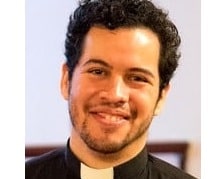“Christ Jesus, whom God has made our wisdom, our righteousness and sanctification and redemption” (1 Cor. 1:30).
The Barmen Declaration of 1934, Article 2
As Jesus Christ is God’s assurance of the forgiveness of all our sins, so, in the same way and with the same seriousness he is also God’s mighty claim upon our whole life. Through him befalls us a joyful deliverance from the godless fetters of this world for a free, grateful service to his creatures.
We reject the false doctrine, as though there were areas of our life in which we would not belong to Jesus Christ, but to other lords—areas in which we would not need justification and sanctification through him.
We are coming to the end of another year. (Church year, that is.)
The Feast of Christ the King—the final Sunday of the church year—will take place on November 22. Though the idea of Christ’s kingship has been with us since the beginning of the Jesus Movement, the feast day itself is a modern development: Pope Pius XI promoted its observance in the encyclical Quas primas on December 11, 1925.
The Great War cast a long shadow over the 1920s. At its inception, this new feast day was a response to the growing secularism and nationalism on the world stage. By celebrating Christ’s universal kingship over all peoples, Pius XI hoped that the faithful would “become more and more conscious of the link that binds them together, and thus many conflicts will be either prevented entirely or at least their bitterness will be diminished.”
So much for that. The ties that bind us together these days seem, not just fragile, but virtually non-existent. In times like these, it is tempting to give lip service to the idea that “God is in control” and leave it at that.
Too often, however, claiming that God is in control glosses over our duties and responsibilities as God’s people. Claiming that Christ is King, you see, does not mean that things are how they are supposed to be. Rather, claiming that Christ is King is a statement about the One to whom we owe our allegiance to—and the kingdom to which we truly belong.
That allegiance demands something—it demands everything—of us. As the leaders of the Confessing Church in Germany proclaimed in the 1930s, we must reject the false doctrine that “there [are] areas of our life in which we would not belong to Christ, but to other lords.” God demands our full, unrelenting, uncompromising allegiance, and that extends to the first citizens of God’s Kingdom too: the poor and the disenfranchised, the sick and the suffering, the meek, the forgotten, and those who have given into despair.
Thank God for that. Thank God for a kingdom that welcomes such a motley crew, and for the strength and courage to stand with them—especially in times like these.
— Fr. Javier

